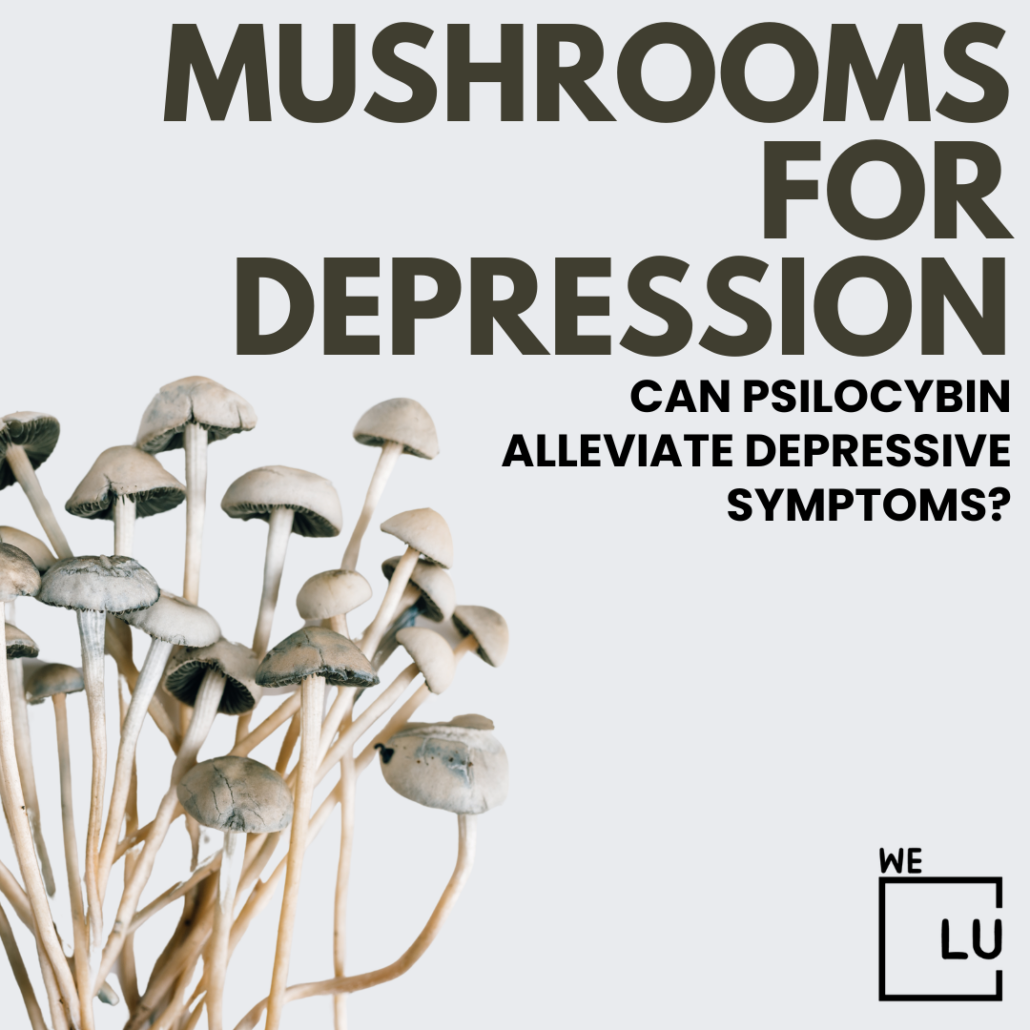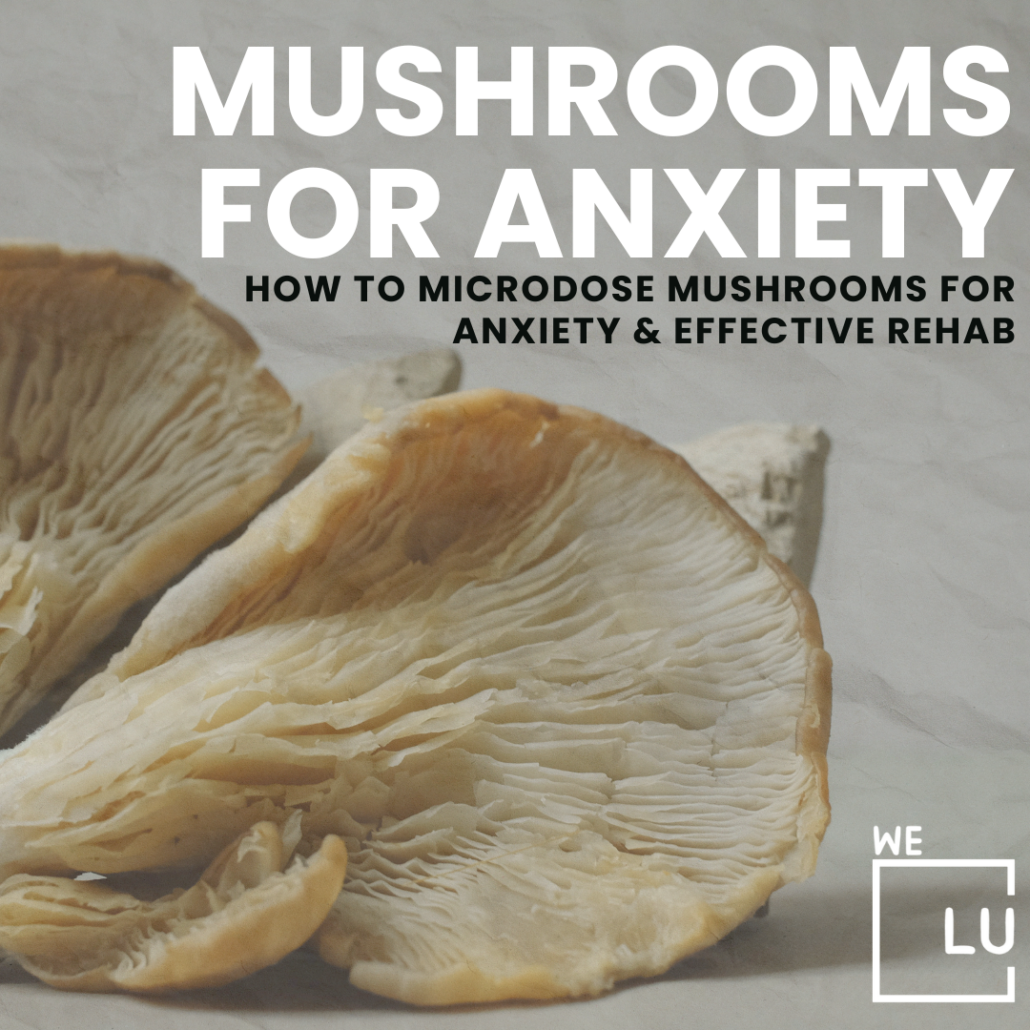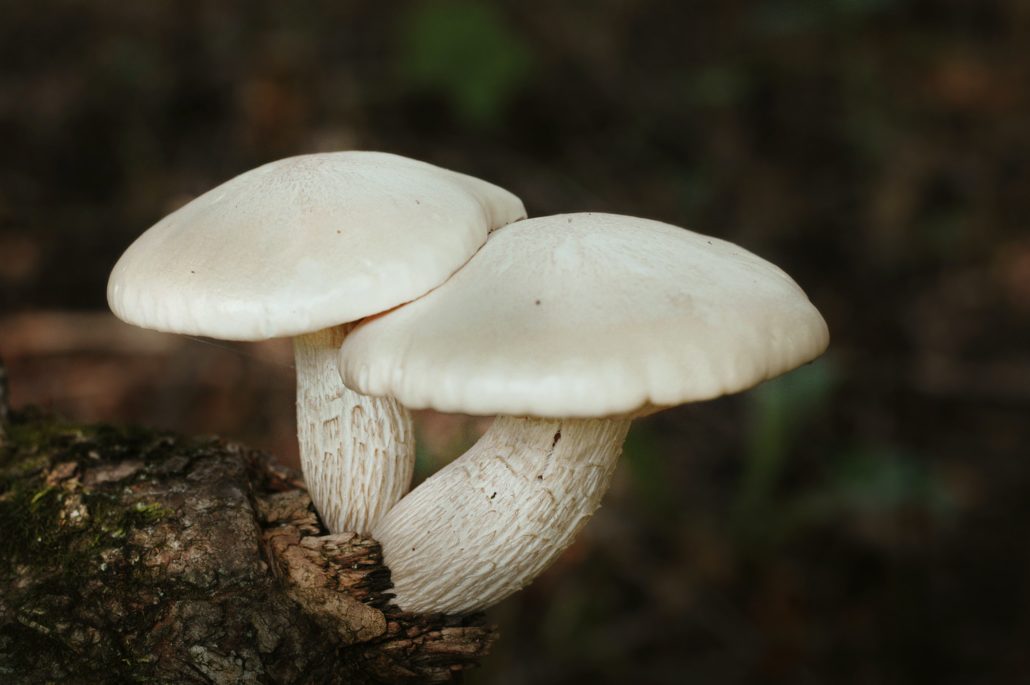WARNING: Psilocybin may be considered an illegal substance in certain regions, and we do not endorse or advocate its use where prohibited by law. This guide aims to prioritize the safety of individuals who use this substance in compliance with legal regulations.
What is Psilocybin, The Mushrooms For Depression?
Psilocybin, present in certain mushrooms like magic mushrooms, influences specific serotonin receptors in the brain, potentially leading to shifts in mood, cognition, and perception. These alterations in consciousness are believed to offer potential therapeutic benefits.
Individuals consuming psilocybin often report gaining profound insights into their lives, relationships, and personal meaning, which holds significance in depression treatment.
Currently, psilocybin remains classified as a Schedule I drug and lacks approval by the Food and Drug Administration for clinical utilization.
What is Depression?
Depression (also known as Major Depressive Illness or Clinical Depression) is a common but significant mood disorder, according to the National Institute of Mental Health. It produces severe symptoms that interfere with your ability to function daily, including sleeping, eating, and working. The signs of depression must last for at least two weeks before a diagnosis may be made.
Depression treatment is required when depressive symptoms are chronic and do not go away since some types of depression are slightly different or may arise in unusual situations.
What do The Studies Say About Psilocybin for Depression?
Numerous species of mushrooms, sometimes referred to as “magic mushrooms,” contain a compound called psilocybin that has hallucinogenic effects. This chemical causes sensations of pleasure and sensory hallucinations that linger for several hours after consumption.
According to some studies, psilocybin may be an effective treatment for several mental health issues, particularly depression, when used in conjunction with psychotherapy.
One of the most prevalent types of mental disorders is depression. According to the National Institute of Mental Health, 7.1% of American adults reported having at least one episode of depression in the year prior.
Fortunately, conventional therapies like psychotherapy and antidepressants can be successful. However, a recent upsurge of interest in using psychedelics to treat mental illness has indicated that drugs like psilocybin may be yet another successful method for treating depression.
How Does a Treatment Of Psilocybin For Depression Work?
An individual will consume a small amount of psilocybin under a professional’s supervision in a cozy and secure setting.
The participant will work with the therapist to integrate their psychedelic session thereafter. The objective is to aid the individual in processing and giving meaning to what they have just gone through.
Recognizing that psychotherapy is a crucial step in this process is critical. Working with a therapist aids the person in processing and making sense of their psychedelic experience in a way that could have long-term positive effects on mental health.
In clinical trials, administering psilocybin involves intense psychotherapeutic preparation before taking the substance. This involves being supported during an eight-hour session with two therapists present. After this, integration sessions explore how to translate those experiences into a patient’s life.
The therapeutic approach to psilocybin treatment is not solely about taking a substance. It encompasses the intentions behind it and the necessary support within a therapeutic framework.
Given legal constraints, insufficient data, and the need for ongoing research, recommending psilocybin to patients is currently not advised.

Skip To:
Learn More:
- Studies Find That A Dose of Psilocybin May Ease Symptoms of Anxiety and Depression
- What Does Depression Feel Like? Symptoms and Early Signs
- Why Am I So Sad? Causes and Top 10 Coping Tips for Depression
- What is Mild Depression? Symptoms and Treatment
- What is Crippling Depression? Learning How To Deal With Crippling Depression
- Atypical Depression. What Is It? Symptoms and Treatment
- Learn How to Cope with Depression. 10 Ways to Cope with Depression.
- Manic Depression Vs Bipolar. Are They The Same?
- Situational Depression Vs Clinical Depression, Symptoms, Causes, and Treatment
- Signs Of Depression In Women, Symptoms and Treatment
- Effective Depression Treatment, Depressive Disorder Symptoms, Types, and Causes
Get Help. Get Better. Get Your Life Back.
Searching for Accredited Dual Diagnosis Mental Health Centers Near You?
Even if therapy failed previously, or are in the middle of a difficult crisis, we stand ready to support you. Our trusted behavioral health specialists will not give up on you. When you feel ready or just want someone to speak to about counseling alternatives to change your life call us. Even if we cannot assist you, we will lead you to wherever you can get support. There is no obligation. Call our hotline today.
FREE 24/7 Dual Diagnosis Mental Health Services Hotline
Mushroom Dosage For Depression
When it comes to psychedelics, microdosing is taking drugs in doses that are insufficient to hurt daily life. Depending on the mushroom dose for depression, it could be taken three to five times each week.
Psychedelics For Depression And Anxiety
The use of psychedelics was linked to significant reductions in depression and anxiety symptoms as well as an improvement in emotional well-being. With increasing exposure to psychedelics, these benefits became more pronounced, with a ceiling effect. However, after a single lifetime use, improvements were seen.
Psychedelics in Depression Treatment
Antidepressant medication fails to help up to 30% of depressed patients. This may be due to biological variations between patients and the fact that pharmacological responses are frequently slow, with some patients giving up after a while. Therefore, there is a pressing need to increase the range of medications available to those who suffer from depression.
The key ingredient in “magic mushrooms,” psilocybin, has been under the spotlight in recent years. Few details are known about how psilocybin relieves depression in the brain, despite numerous clinical trials demonstrating that it can do so quickly, especially for depression and anxiety linked to cancer.
Can Psychedelic Mushrooms Cause Depression?
Even while mushrooms have been touted as a possible depression treatment, for some people, the changes in brain chemistry might worsen or even start depression. The majority of the evidence for improved and worsening depression is anecdotal. People may feel horrible about themselves and their altered abilities as a result of changes to their judgment, learning, and memory, and this diminished self-esteem may be linked to an increase in depression.

End the Emotional Pain. Get Your Life Back.
Feeling Depressed, Anxious or Struggling with Mental Health Illness? Get Safe Comfortable Mental Health Dual Diagnosis High-Quality Therapy From Counselors That Care. Begin Your Recovery Now.
Hotline (855) 940-6125Microdosing Mushrooms for Anxiety and Depression
The effects of psilocybin are comparable to those of LSD. Feelings of euphoria and relaxation may be experienced by individuals. The chemical affects brain circuits that use the neurotransmitter serotonin to function. Perceptions are transformed, and awareness is altered due to this action.
Following psilocybin use, individuals may experience the following effects:
- Distorted perceptions, including an altered sense of time or place.
- Euphoria.
- Hallucinations.
- Highly spiritual or introspective experiences.
After ingesting psilocybin, hallucinations are frequently reported as a side effect. According to research, this is caused by increased communication between various brain networks.
This is thought by some researchers to contribute to psilocybin’s antidepressant effects. It might aid individuals in breaking out from depressed tendencies by altering brain connections and creating new ones.
Research Insights on Psilocybin Treatment for Depression
Are psychedelic mushrooms good for depression? Clinical trials have produced encouraging results, and research into the use of psilocybin-assisted therapy for depression is still in progress. According to a 2016 study, psilocybin therapy was associated with a significant decrease in anxiety and depressive symptoms in cancer patients.
The medication was also connected to various advantages in addition to these outcomes. Psilocybin users claimed to have more optimism and a higher quality of life after treatment.
Clinical Trials and Findings
Treating depression with psilocybin: A subsequent study claimed that these results were similarly long-lasting. Five years following treatment, participants still showed a significant reduction in depression symptoms. Between 71 and 100 percent of the patients regarded their experiences with psilocybin-assisted treatment as some of the “most personally important and spiritually significant moments of their lives,” according to the study.
Two doses of psilocybin combined with supportive psychotherapy, according to a 2020 study published in JAMA Psychiatry and conducted by scientists at Johns Hopkins Medicine, produced immediate and intense antidepressant benefits. About 67% of subjects saw a 50% decrease in their symptoms. They also seem to have a lasting effect. 54% of the subjects who received psilocybin therapy were no longer depressed four weeks following treatment.
Risks and Considerations of Mushroom Therapy for Depression
Psilocybin can also produce unwanted effects such as:
- Delusions.
- Drowsiness.
- Headaches.
- Nausea.
- Nervousness.
- Panic.
- Paranoia.
- Psychosis.
A “bad trip” is a psychedelic experience that can occasionally occur as a result of psilocybin use. A person may go through this experience with extreme worry and fear. Additionally, it may result in frightful paranoia, delusions, and hallucinations.
It’s vital to only use psilocybin for depression under the guidance of a mental health professional because, while it’s impossible to halt a poor trip, being in a soothing setting with a supporting person might be beneficial.
People who have already gone through manic or psychotic episodes may also be in danger from psilocybin. Because of this, those who suffer from illnesses like schizophrenia or bipolar disorder shouldn’t undertake psilocybin-assisted therapy.
First-class Facilities & Amenities
World-class High-Quality Mental Health Services & Behavioral Health Substance Abuse Treatment
Rehab Centers TourRenowned Mental Health Centers. Serene Private Facilities. Inpatient Rehab Programs Vary.
Mental Health Helpline (855) 940-6125Proven recovery success experience, backed by a Team w/ History of:
15+
Years of Unified Experience
100s
5-Star Reviews Across Our Centers
10K
Recovery Successes
- Comprehensive Dual-Diagnosis Treatment
- Complimentary Family & Alumni Programs
- Coaching, Recovery & Development Events
- Comfortable Onsite Medical Detox Center
Psilocybin as a Depression Therapy
Despite curiosity about psilocybin’s medicinal potential, using it is still prohibited because it is a Schedule I drug.
However, evidence from studies indicates that the likelihood of physical dependence and misuse is limited. Researchers in one study suggested regulating the drug no more strictly than a Schedule IV.
Substances with a low risk of dependence and a low potential for abuse are classified as Schedule IV drugs. This group of medicines includes Xanax and Ambien.
Psilocybin-assisted therapy was given breakthrough therapy status by the FDA in 2019. This is done to speed up the research and development of medications for treating critical illnesses that have shown promising outcomes in clinical trials.
There may come a moment in the future when people can go to a doctor or mental health expert to obtain psilocybin-assisted treatment for their depression, even though it is unlikely that they will be able to pick up a prescription for the drug at their neighborhood drugstore.
The Role of Psychedelic Mushrooms in Depression Treatment
Previous research by scientists at Johns Hopkins Medicine demonstrated that adults with major depressive disorder experienced significant symptom relief after psilocybin therapy for up to a month. The strong antidepressant effects of psilocybin-assisted therapy, when combined with supportive psychotherapy, may endure at least a year for certain patients, according to a follow-up analysis of those individuals.
Are Psychedelic Mushrooms Good For Depression?
Psychedelic depression treatment: 27 people with a lengthy history of depression were enrolled in this study; the majority of them had been exhibiting depressive symptoms for two years before enrollment. Participants’ average age was 40; 19 of them were female, and 25 of them identified as white, one as African American, and one as Asian. Eighty-eight percent of participants reported having received standard antidepressant treatment in the past, and 58% said they were currently using antidepressants to treat their depressive episodes.
Following the screening, participants were randomly assigned to one of two groups, receiving the intervention immediately or eight weeks later. All participants had six to eight hours of preparation meetings with two treatment facilitators before the start of treatment.
Following preparation, individuals were administered two doses of psilocybin at the Johns Hopkins Bayview Medical Center’s Behavioral Biology Research Center, spaced roughly two weeks apart between August 2017 and April 2019. Twenty-four participants completed all psilocybin sessions and all assessment visits one day and one week after each session, as well as one, three, six, and twelve months after the second session.

World-class, Accredited, 5-Star Reviewed, Effective Mental Health Dual Diagnosis Programs. Complete Integrated Inpatient Rehab with Free Post Discharge Therapy Planning.
CALL (855) 940-6125End the Emotional Pain Rollercoaster. Gain Stability & Happiness Through Recovery Treatment. Start Mental Health Counseling Today. Get Free No-obligation Guidance by Behaviroal Health Specialists Who Understand Mental Health Recovery.
We Level Up Dual Diagnosis Treatment
The exact definition of dual diagnosis (also referred to as co-occurring disorders) can differ between institutions. However, it is generally described as the specific treatment of someone who has been diagnosed with a substance use disorder and a mental health disorder at the same time. Treating dual-diagnosis clients is a critical aspect of our inpatient treatment experience because co-occurring disorders are strongly correlated with instances of substance abuse.
Creating a treatment plan that addresses the physical aspects of withdrawal, the psychological connection with drug use, and managing underlying mental health disorders is part of setting clients up for success. A thorough mental health analysis identifies possibilities for treatment. Meeting with mental health counselors and medical care providers means access to behavioral therapy and medication treatment. At our dual diagnosis treatment center, We Level Up can implement the highest quality of care.
We recognize the fragile complexities of how mental and substance abuse disorders can influence others and sometimes result in a vicious cycle of addiction or an alcohol depression cycle. That’s why we offer specialized treatment in dual-diagnosis cases to provide the most excellent chance of true healing and long-lasting recovery. There is no set alcohol depression recovery time; each person has their own time.
It can be challenging to accept that you may be living with a mental illness, but once it is properly diagnosed and treated, treating the presenting case of substance abuse can be magnitudes easier. Only a properly trained medical professional can diagnose these underlying conditions. If you believe you are suffering from a disorder alongside addiction, we urge you to seek a qualified treatment center to begin your journey to recovery. Call We Level Up today.
Experience Transformative Recovery at the We Level Up Treatment Center.
See our authentic success stories. Get inspired. Get the help you deserve.



Start a New Life
Begin with a free call to a behavioral health treatment advisor. Learn more about our dual-diagnosis programs. The We Level Up treatment center network delivers recovery programs that vary by each treatment facility. Call to learn more.
- Personalized Care
- Caring Accountable Staff
- World-class Amenities
- Licensed & Accredited
- Renowned w/ 5-Star Reviews
We’ll Call You
Clinical Depression Symptoms and Signs
Search We Level Up FL Mushrooms for Depression: Can Psilocybin Alleviate Symptoms Resources
Sources
- Lowe H et al. (2021). The therapeutic potential of psilocybin.
https://www.ncbi.nlm.nih.gov/pmc/articles/PMC8156539/ Mushrooms for Depression, depressed mushroom, psilocybin depression, mushrooms depression – Related Articles - Psychedelic and dissociative drugs. (2023).
https://nida.nih.gov/research-topics/psychedelic-dissociative-drugs Mushrooms for Depression, depressed mushroom, psilocybin depression, mushrooms depression – Related Articles - Psilocybin. (2020).
https://www.dea.gov/sites/default/files/2020-06/Psilocybin-2020.pdf Mushrooms for Depression, depressed mushroom, psilocybin depression, mushrooms depression – Related Articles - Reynolds S. (2023). How psychedelic drugs may help with depression.
https://www.nih.gov/news-events/nih-research-matters/how-psychedelic-drugs-may-help-depression Mushrooms for Depression, depressed mushroom, psilocybin depression, mushrooms depression – Related Articles - Roseman L, et al. (2018). Increased amygdala responses to emotional faces after psilocybin for treatment-resistant depression.
https://www.sciencedirect.com/science/article/pii/S0028390817306391 Mushrooms for Depression, depressed mushroom, psilocybin depression, mushrooms depression – Related Articles - Ziff S, et al. (2022). Analysis of psilocybin-assisted therapy in medicine: A narrative review.
https://www.ncbi.nlm.nih.gov/pmc/articles/PMC8901083/ Mushrooms for Depression, depressed mushroom, psilocybin depression, mushrooms depression – Related Articles - Drug Fact Sheet: Psilocybin https://www.dea.gov/factsheets/psilocybin
- Agin-Liebes GI, Malone T, Yalch MM, et al. Long-term follow-up of psilocybin-assisted psychotherapy for psychiatric and existential distress in patients with life-threatening cancer. J Psychopharmacol 2020;34(2):155-166.
- Anderson BT, Danforth A, Daroff PR, et al. Psilocybin-assisted group therapy for demoralized older long-term AIDS survivor men: An open-label safety and feasibility pilot study. EClinicalMedicine 2020;27:100538.
- Anderson T, Petranker R, Christopher A, et al. Psychedelic microdosing benefits and challenges: an empirical codebook. Harm Reduct J 2019;16(1):43.





